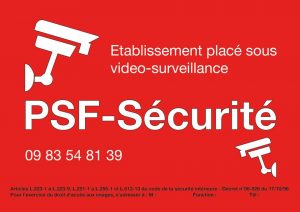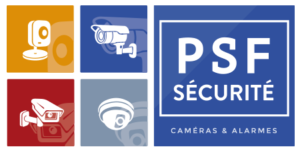Video surveillance: Regulations
the rules to know before any installation
Long confined to the most generous portfolios and companies, video surveillance has become very popular in recent years. While it now aims to be accessible to as many people as possible, it does not however escape a certain number of rules. Individuals, as well as professionals, must therefore comply with very specific regulations before installing any equipment.
What are the rules for installing a camera in your home?
Any individual is free to install a video surveillance system in his home if he wishes to guarantee its security. However, the person must be careful not to break some rules. The cameras can therefore only be directed towards the interior of the property, with the exception of the immediate surroundings of the home such as the facade or the sidewalk in front of the entrance gate. A sign must be hung in the residence to inform visitors of the existence of the device. Another obligation: the images collected may under no circumstances be disseminated via the Internet or social networks, their function being limited to the security of the home. Finally, a declaration must be filed with the National Commission for Computer Freedoms (CNIL) by the owner of the facility when a third party comes to exercise a professional and paid activity at the home in question.

Do companies have to justify the implementation of video surveillance?
Like individuals, businesses are also subject to a number of rules that must be observed. The first and not the least: the company wishing to equip itself with a video surveillance system must first justify the validity of its installation. The employer thus has a duty to inform his staff before the implementation of any system. Must be oriented towards so-called risk areas (building entrances and exits, stairwells, emergency exits), cameras cannot be diverted in order to spy on an employee’s daily activity. The use of the system is again limited to the protection of individuals or of high value goods. Information signs indicating the existence of the said device must also be displayed in a visible manner inside the premises. Last formality: the company must submit a declaration to the CNIL in the event that the cameras film a place not open to the public (storage area, reserves, space dedicated to staff) or send an authorization form to the relevant prefecture when they film a place open to the public (checkouts, shopping areas, entry and exit areas).
What penalties apply in the event of non-respect for the privacy of others?
Article 9 of the Civil Code states that everyone has the right to respect for their private life. In the event of a breach of this rule, different penalties apply depending on whether the video surveillance system belongs to an individual or a company. The camera owner can thus be fined 45,000 euros and even be sentenced to one year’s imprisonment if it is proven that his installation has enabled the privacy of a neighbor or a close. The range of sanctions is even wider for companies. If he does not comply with the rules of good conduct in force, the company manager risks a fine of up to 150,000 euros at the most from the CNIL. Another possibility: the boss can also be brought to justice where he will have to answer for his acts. On the criminal side, the legal person faces one year’s imprisonment and a fine of 225,000 euros. The illegal or unfair collection of images is punishable by a fine of 300,000 euros and a five-year prison sentence.

Who are the people authorized to view a recorded video?
At a private home, the images recorded by the video surveillance system can be viewed by anyone in the household in question, provided, however, that the owner has granted them permission. The only constraint being to have to respect the right to the image of all the people likely to enter the family home and not to infringe the privacy of the people filmed. In a company, only a small number of people have the power to view the recorded images. This authorization is usually part of a function like a security officer. However, persons authorized to consult a recording must first follow an awareness training course on the rules for implementing a video surveillance system. Employees of a company, and even simple visitors, on the other hand, have the possibility of exercising a right of access to the images concerning them.
How long can I keep a recording?
The retention period of a video recording is strictly regulated by law. The prefect thus sets a maximum period of one month when it is a public place or one accessible to the greatest number. Only a police investigation or judicial information can lead the prefect to extend the pre-established time limit. On the other hand, companies that have installed a video surveillance system in places not open to the public are also required to destroy their video tapes after one month. In the event of an incident or theft at their workplace, companies and businesses have the option of extracting images from their device and keeping them throughout any criminal proceedings. The person authorized to view the recording must, however, ensure that this operation is recorded in a specific notebook.
Andrea Noviello
